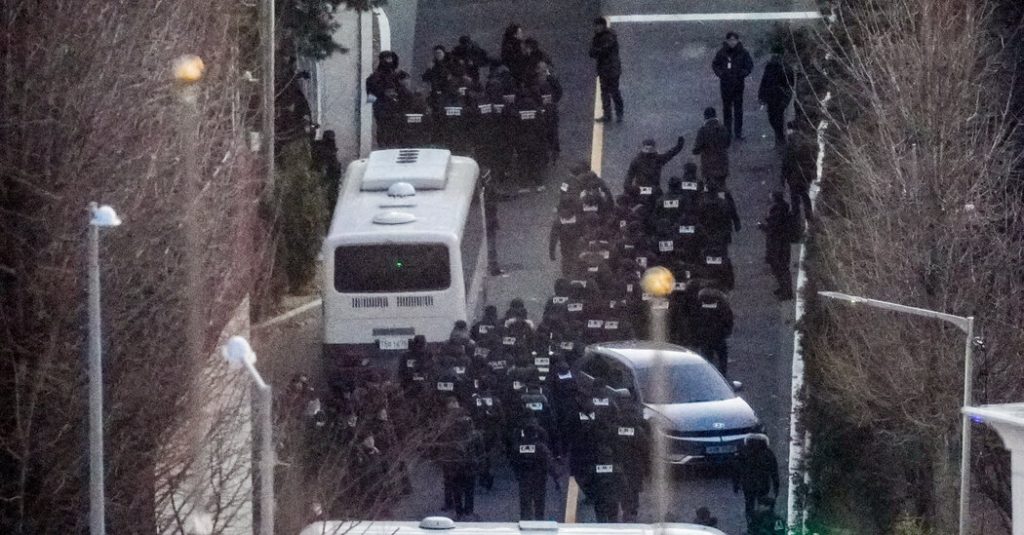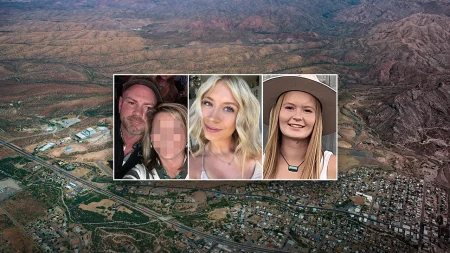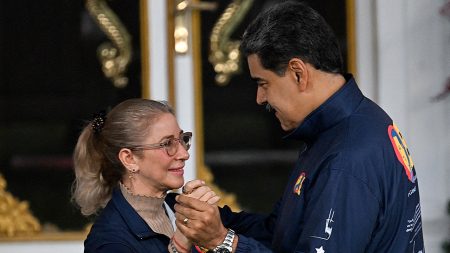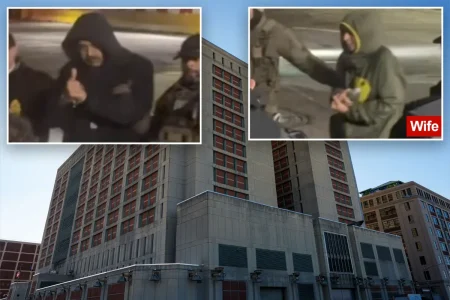South Korea is at a dramatic crossroads, with an unprecedented political showdown playing out at the very heart of its leadership. Picture this: a chilly Wednesday morning as dawn begins to break. A fleet of police buses silently assembles on the icy streets leading to a hilltop presidential compound. Armed with a court-issued detention warrant, criminal investigators and police stand poised for a second attempt to arrest the impeached president, Yoon Suk Yeol. This isn’t just any political drama—it’s one gripping enough to dominate headlines, command live broadcasts, and capture the attention of citizens around the country. The charge? Insurrection, stemming from Yoon’s audacious, albeit short-lived, declaration of martial law last month.
The Fallout of Martial Law
Yoon Suk Yeol’s sudden foray into military rule marked a grim milestone in South Korean history. His imposition of martial law shocked a country that had steadily moved toward democracy since the late 1980s. On December 14, the National Assembly impeached and suspended the president from office, igniting a storm of political controversy. Since then, Yoon has remained barricaded inside the presidential compound, defiant as investigators seek to bring him in for questioning.
Round Two: Courage and Calculations
This isn’t the first time authorities have tried to detain Yoon. Earlier this month, investigators approached his heavily fortified residence with hopes of enforcing an initial warrant. What they encountered was more resistance than they had bargained for: a fortified compound sported barricades, buses, razor wire, and dozens of presidential security guards. The authorities were embarrassingly outnumbered, outmaneuvered by a calculated display of strength, and had no option but to retreat after a grueling 5.5-hour standoff. But this morning, that calculus had changed.
Determined to leave no room for failure this time, investigators regrouped, renewing their detention warrant and amplifying the size of their task force. Reports indicated that up to 1,000 officers would participate in the operation, including specialized units typically called in to deal with drug cartels and organized crime. Their mission: to overcome obstacles and detain the impeached president at any cost. Complicating matters further were warnings by officials that anyone obstructing the effort to serve the warrant would face arrest, a significant escalation from earlier efforts.
Tense Morning in the Cold
As dawn broke that fateful Wednesday, the hilltop compound turned into the epicenter of a tense, high-stakes standoff. Yoon’s supporters were out in full force, ranging from his legal team and party lawmakers to the fiercely loyal personnel of the presidential security service. The crowd of defenders stationed themselves outside the compound gates, bolstered by the fortified preemptive measures: additional buses, razor-wire barricades, and human shields of guards.
On the opposing side, investigators and police braved the freezing temperatures; an uneasy mix of shoving, shouting, and cold silences set the stage. Arching over this dramatic scene was the specter of looming violence—both sides digging in their heels with no apparent desire to back down.
Yoon’s Defiance and the Growing Stakes
Yoon himself remains unapologetic and defiant, cloaking his resistance in the guise of legal and political principle. For weeks, he has maintained that the detention warrant against him is illegal. He has declared he will "fight to the end" to restore himself to power, further feeding fears of confrontation. To him, surrender is not an option—and he has fortified his resolve, much like the physical defenses surrounding the compound. Adding credence to his defiance is the memory of the January 3 confrontation, where his Presidential Security Service outnumbered and outmaneuvered the investigators.
This time, however, the stakes are higher. For one, the acting president, Deputy Prime Minister Choi Sang-mok, publicly warned just the day before against any violence. “All the people and the international community are watching this,” Choi said in a statement, underscoring the reputational risks at hand. His comments reflect broader fears that physical confrontations could irreparably harm South Koreans’ trust in their institutions and tarnish the country’s hard-earned democratic reputation on the global stage. With relentless media and social media attention broadcasting live coverage, the weight of public opinion looms large over every move.
Meanwhile, the Constitutional Court had only recently begun its deliberations over whether Yoon should be impeached for good. While this legal process will take time, the absence of answers means the current stalemate is unusually fraught, devoid of any clear resolution paths.
An Institution Under Siege
The drama extends beyond just Yoon himself—his presidential security team has also become a key player. The Presidential Security Service ostensibly exists to guard the president and his family, yet their efforts to resist law enforcement are now under intense scrutiny. When the first detention attempt faltered, reports circulated that more than 200 bodyguards and soldiers were deployed to oppose the 100-member team of investigators. This balance of power was subsequently reshuffled when the defense ministry intervened, prohibiting soldiers from blocking the warrant’s enforcement. The question remains: just how far can the security team go? And will this institutional tug-of-war diminish their legitimacy?
History in the Making
This standoff, in many ways, marks a historical moment for South Korea—the first time authorities are attempting to detain an acting president. The legal complexities, public sentiment, and potential implications for South Korea’s democratic image together form a potent mix of tension and high stakes.
At its core, this moment exemplifies a country wrestling with its identity. On one hand, the government must uphold the rule of law, ensuring that no leader, not even the president, exists above accountability. On the other, there is the logistical challenge of enforcing such decisions against a well-protected, highly public figure with a loyal base of supporters. All of this unfolds in a climate of uncertainty, where even a misstep could trigger a cascade of unintended consequences—domestically and internationally.
The Road Ahead
As of now, it’s unclear how the standoff will end. With the court proceedings underway and the police prepared for a continued push, both sides are locked in a game of political endurance. Will Yoon eventually relent and subject himself to questioning? Or will the investigators manage to pierce through the fortified defenses of the presidential compound? Alternatively, could South Korea witness a violent confrontation, something that critics and leaders alike have warned would tarnish its political landscape?
As the country watches the events unfold in real-time, one thing remains certain: this chapter of South Korean politics will be one for the history books, testing the nation’s democracy and its ability to balance order, justice, and dignity under extraordinary circumstances.










